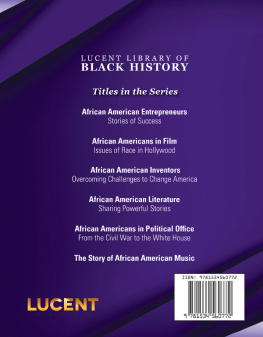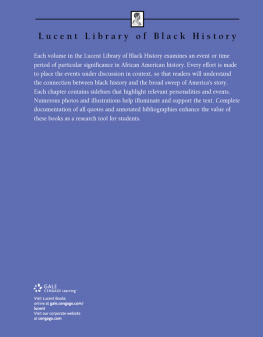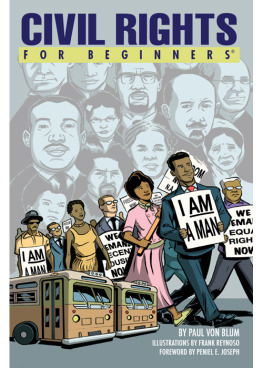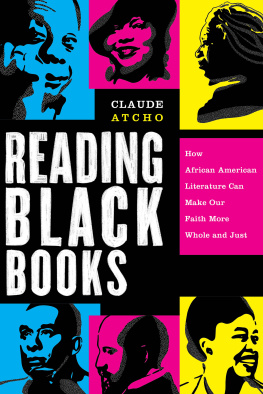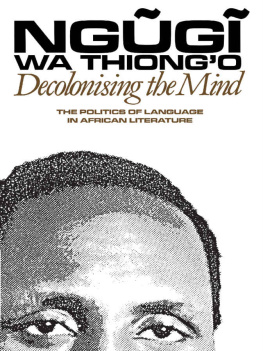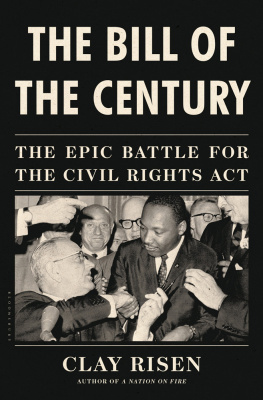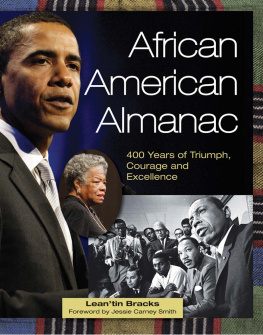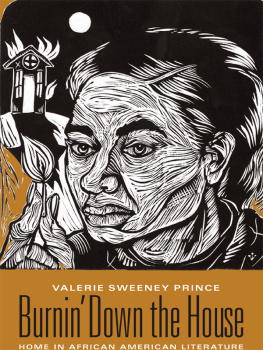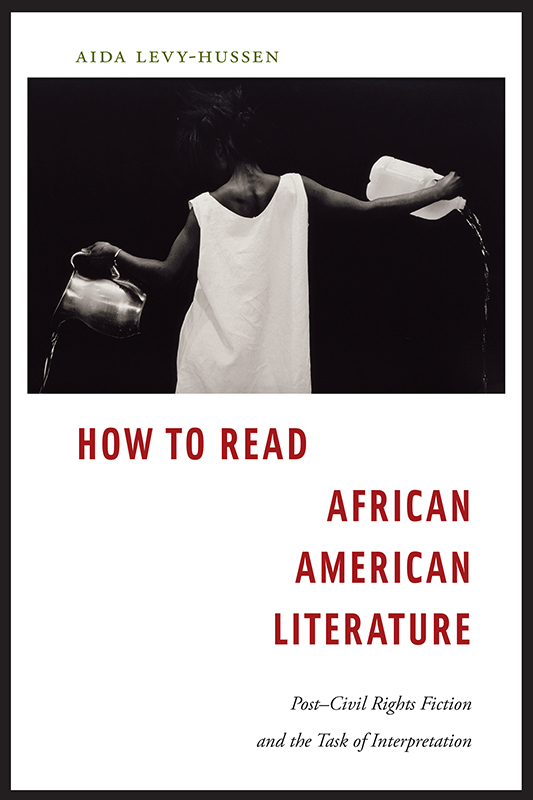
How to Read African American Literature
How to Read African American Literature
PostCivil Rights Fiction and the Task of Interpretation
Aida Levy-Hussen

NEW YORK UNIVERSITY PRESS
New York
NEW YORK UNIVERSITY PRESS
New York
www.nyupress.org
2016 by New York University
All rights reserved
References to Internet websites (URLs) were accurate at the time of writing.
Neither the author nor New York University Press is responsible for URLs that
may have expired or changed since the manuscript was prepared.
ISBN : 978-1-4798-9094-1 (hardback)
ISBN : 978-1-4798-8471-1 (paperback)
For Library of Congress Cataloging-in-Publication data, please contact the Library of Congress.
New York University Press books are printed on acid-free paper,
and their binding materials are chosen for strength and durability.
We strive to use environmentally responsible suppliers and materials
to the greatest extent possible in publishing our books.
Manufactured in the United States of America
10 9 8 7 6 5 4 3 2 1
Also available as an ebook
for Alyssa
Contents
I am grateful for the opportunity to thank friends, family, colleagues, and mentors who supported me through the writing of this book. It is a book I couldnt have written without years of training under the immeasurably generous Michael Awkward. I thank him for his mentorship, for our many conversations that helped to shape my thinking, and for being my toughest reader and strongest advocate. I am also indebted to Martine Watson Brownley who advised me throughout graduate school, engaged seriously with my thoughts before seriousness was merited, and made heroic efforts to rein in my neuroses.
Several extraordinary people read drafts of the manuscript in its entiretysome more than once. For this, I thank Madhu Dubey, Michelle Kuo, Alyssa Levy-Hussen, Cherene Sherrard-Johnson, and Jeff Steele. Madhu offered especially thorough and incisive feedback and helped me work through a conceptual problem that had me stuck. Michelle has read nearly every word Ive written for over a decade. Her editorial eye is both generous and shrewd, but her friendship is all generosity. I thank her for challenging me, encouraging me, and seeing me through the bests and worsts of young (to middle) adulthood with unfailing loyalty and unconditional high esteem.
Soyica Colbert and Robert Patterson are dear friends, prized interlocutors, and exceptional peer mentors. I thank them for reading portions of the book in progress and for many valuable conversations about its contents. Robert has supported me at every juncture of personal and professional development: He is an inexhaustible source of insight, affirmation, intellectual generosity, and comic relief. Thanks, too, to the rest of our Emory University graduate school crewBrittney Cooper, Susana Morris, and Yolande Tomlinsonfor making the early years of professional development rich and pleasurable and for their continuing friendship.
I am grateful to my wonderful colleagues at the University of WisconsinMadison, who welcomed me, read drafts, and gave generously of their time and insight: most of all, Leslie Bow, Russ Castronovo, Christy Clark-Pujara, Ramzi Fawaz, Susan Friedman, Terry Kelley, Caroline Levine, Keisha Lindsay, Linn Posey-Maddox, Ellen Samuels, Cherene Sherrard-Johnson, Jeff Steele, Nirvana Tanoukhi, Tim Yu and David Zimmerman. Leslie and Russ are exceptionally giving mentors, readers, and advocates. Ramzi is a dear friend who always comes through at crucial times, reading drafts, talking through ideas, and offering pep talks and warm camaraderie. Susan is a brilliant reader and a generous and savvy advisor. Among many kindnesses, Caroline commented on works in progress, talked me through challenging stages of manuscript submission, and introduced me to the heartening genre of the shadow c.v. Cherene consults with me on all problems big and small, offering smart, rigorous feedback on drafts, always sound advice, and reassurance at times when I need it most. Nirvana has been a savior at moments of conceptual and critical impasse, giving generously of her time and her inimitable brain. More important, she is a sister-friend who has helped make Madison my home. I thank her for sharing genuinely and wholeheartedly in my moments of happiness and for making my times of unhappiness feel bearable.
At New York University Press, I would like to thank Eric Zinner and Alicia Nadkarni for their investment in this project. In addition, I am profoundly grateful to Darieck Scott and an anonymous reviewer whose thorough and insightful feedback helped me to see the books focus and stakes in a new light.
I could not have completed this book without generous support from the University of WisconsinMadison, where funding from the Anna Julia Cooper Postdoctoral Fellowship and the Institute for Research in the Humanities allowed me invaluable stretches of uninterrupted writing time. My time at the IRH was enriched by generative workshops and conversation under Susan Friedmans incomparable leadership. The University of WisconsinMadison Graduate School of Arts and Sciences also provided generous funding for writing and research.
Much of this book was written during time away from teaching secured by the Woodrow Wilson National Fellowship Foundation. I would like to express my gratitude to Caryl McFarlane and Ina Noble, and most of all to my faculty mentor, Madhu Dubey.
Long before I began this book, the Mellon Mays Undergraduate Fellowship Program at Harvard University played a decisive role in determining my professional trajectory. I am indebted to this invaluable program and to my fabulous mentors there, Jason Glenn and Christy Medrano McKellips.
Shelly Fogelman was another early mentor since I had the unexpected good fortune of working for him during a year away from college. I am grateful for his premature confidence in me and for his wisdom, whimsy, and unflaggingly generous spirit. He is a true mensch who has always accepted me fully and without qualification: an extraordinary gift.
My parents, Ahmed and Fumie Hussen, were my first and best examples of intellectual curiosity and perseverance. They have lovingly cheered on my academic ambitions for as long as I can remember. My sister, Sophia Hussen, embodies all the best qualities of big sisters. I thank her for a lifetime of best friendship, for mitigating my weirdness, and for her bighearted love.
My dog Melvin has been a dedicated companion for the last twelve years, spending many early mornings and late nights with me in front of the computer. Although he would vastly prefer more food to being acknowledged, I would be remiss if I didnt mention him as a source of unconditional love that has sustained me since he came into my life.
Most of all, I thank my wife, Alyssa Levy-Hussen. It was my great good fortune to meet her over a decade ago, at a graduate school recruitment event. Since then, my debts to her have accrued beyond imagination. She is my confidant and co-conspirator, my counselor, my muse, my cheerleader and ferocious defender, my ally in all things personal and political, and my ideal companion. That I have found her and that she loves me are the most outrageously lucky facts of my life. This book, like everything I do, is for her.
You know, they straightened out the Mississippi River in places, to make room for houses and livable acreage. Occasionally the river floods these places. Floods is the word they use, but in fact it is not flooding; it is remembering.... All water has a perfect memory and is forever trying to get back to where it was. Writers are like that: remembering where we were, what valley we ran through, what the banks were like, the light that was there and the route back to our original place. It is emotional memory.... And a rush of imagination is our flooding.
Next page

